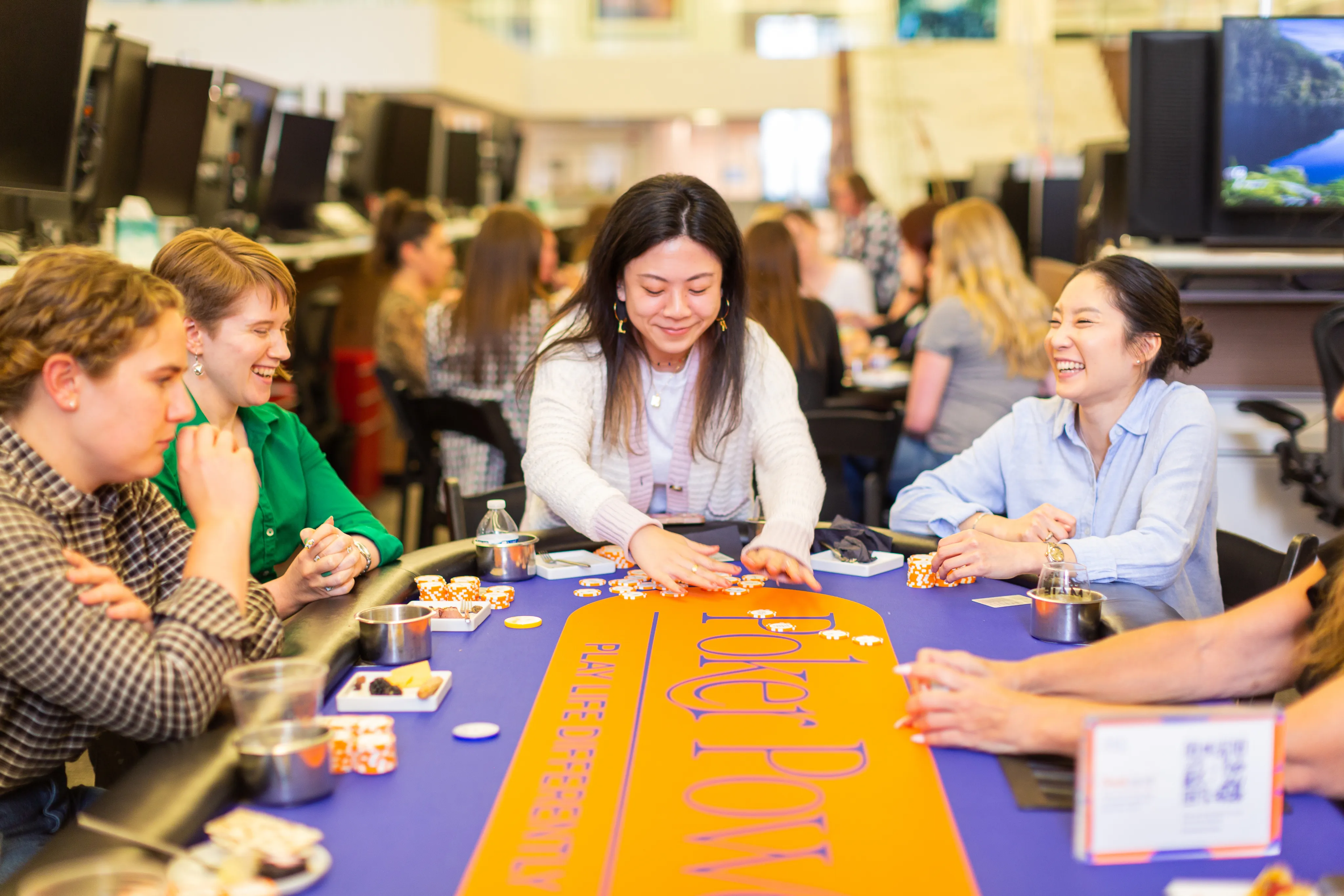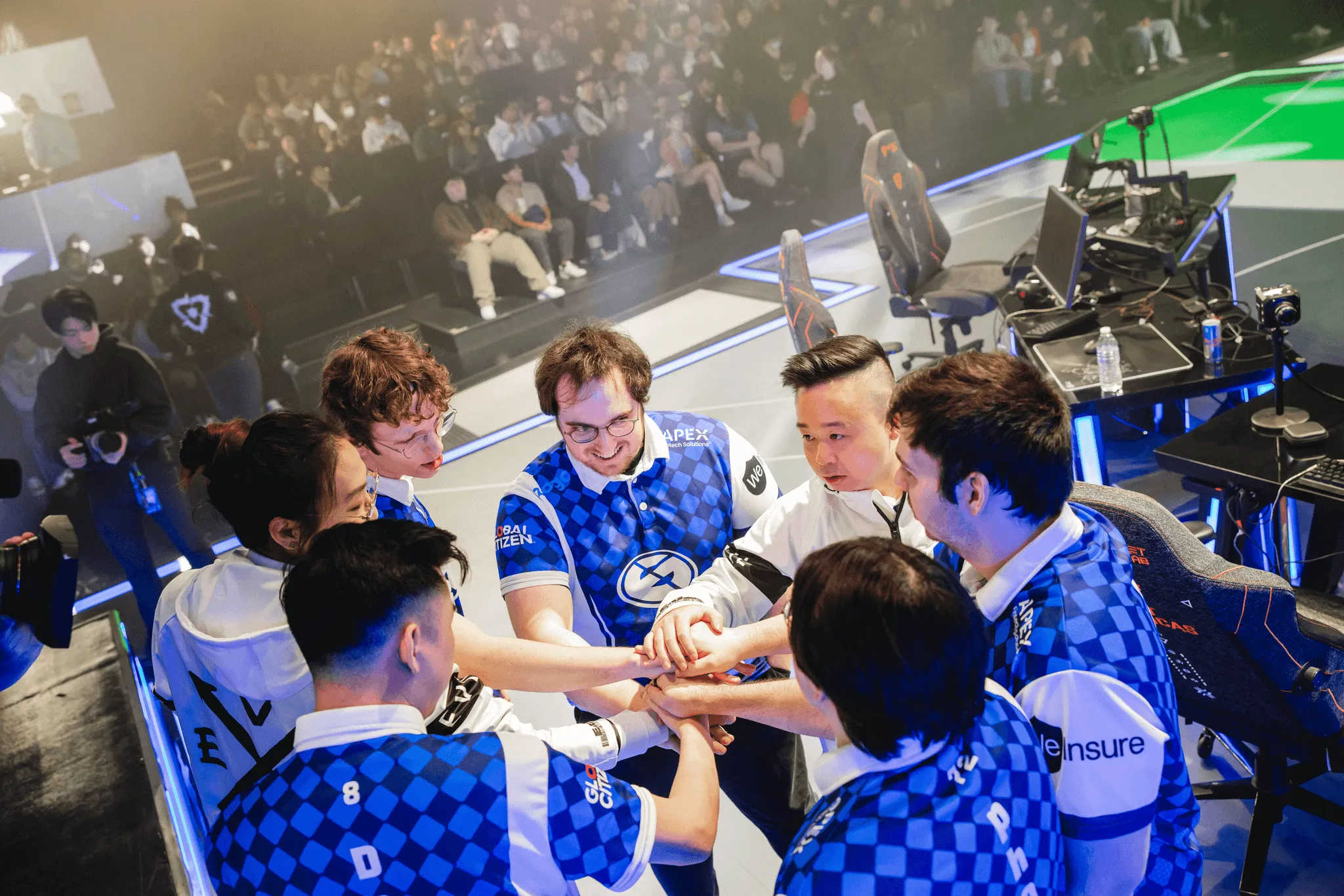WE'RE IN THE BUSINESS OF

WE'RE IN THE BUSINESS OF WHAT OUGHT TO BE
PEAK6 doesn't do anything the traditional way. Mainly because we're not your typical investment firm. We follow opportunities, not the status quo.
Headquartered in Austin, Texas, with roots at the Chicago Board of Trade and offices across the globe, PEAK6 is powered by the same trading that got us our start. It fuels us to think outside the box and remain nimble. We don't chase a bottom line; we adapt our vision to embrace and empower today's consumers through technology, simplifying processes, improving performance, and creating new wealth.

PEAK6 Capital Management
At PEAK6 Capital Management, we believe finding liquidity should be as easy as having a need for it. We strategically accumulate and manage an inventory of long and short options contracts with the help of top technologists, engineers, and traders. We are flexible so market participants can be, too.

PEAK6 Strategic Capital
PEAK6 Strategic Capital seeks out innovative, transformative, and unexpected opportunities where we can invest time, money, and support to help the idea grow. We partner with people we believe in and grow businesses that ought to be financed. Our permanent capital base enables us to invest patiently and independently of fundraising cycles.

Apex Fintech Solutions
Whether you need a platform or a plug-and-play solution, Apex Fintech Solutions helps you get from a big fintech idea to a bold, revolutionizing reality. While we play the strong and silent type, we're cranking behind the scenes to fuel the relentless fintech revolution. Trusted and nimble — we're advancing the frontier of what's possible for a wide variety of clients at Apex.

Poker Power
Master the mindset of poker to lead with confidence, make sharper decisions, and take smarter risks — in work, life, and everything in between. What started with poker mastery is now a life skills platform that leverages the strategies of poker gameplay to help you build confidence, sharpen communication, and make smarter decisions — both at the table and beyond. Through poker-inspired modules and interactive experiences, we teach people how to assess risk, negotiate with precision, and make game-changing decisions with confidence — from the classroom to the C-suite and at every high-stakes moment in between.

We Insure
Life comes with complex and devastating experiences — and joyful moments, too. Coverage, when you need it most, is paramount. We're aiming to democratize the insurance industry from a stagnant behemoth to satisfying solutions for customers across states, cities, or even individual streets. Let us worry about the extreme weather and unexpected disasters. For far too long technology has failed to make it simple. That's where we come in.

Zogo
Zogo builds brand trust that lasts—by making financial confidence part of the brand experience. Our gamified education tools turn users into confident decision-makers, boosting engagement, loyalty, and lifetime value. With 2M+ users and 250+ partners, Zogo makes financial literacy a growth engine for leading institutions.

Focus
FOCUS offers Property & Casualty insurance companies and Managing General Agencies technology solutions through its InFOCUS platform. Through this cloud-based system, FOCUS helps clients manage core administration and underwriting in real-time to mitigate exposure and maximize profitability. FOCUS also offers Insurance Services teams that provide clients with end-to-end business process solutions including underwriting, customer, agent, and claims support. FOCUS takes the risk out of insurance technology and services, and its clients experience the transformative power of partnering with a single, experienced, industry tech and services provider.

Evil Geniuses
Evil Geniuses was chosen as a founding member of the VALORANT Champions Tour (VCT) International League in 2022. As one of ten teams in the Americas Region, we are data-driven in our talent development and purpose-driven in our focus on winning. In 2023, we won the World Championship in the inaugural year of VALORANT Champions Tour. VCT continues to have record viewership and engagement as one of the world's most popular titles. Being part of the VCT is vital to Evil Geniuses' path to victory and world domination. In 2025, we are ready to lift another trophy.
THE SCOOP
Monark Markets and Apex Fintech Solutions Join Forces to Open Access to Private Markets for Retail Investors

State Street Corporation and Apex Fintech Solutions Announce Strategic Partnership to Address Growing Global Wealth Market Opportunity

Bruce Markets Announces George Ruhana as New Board Chair
